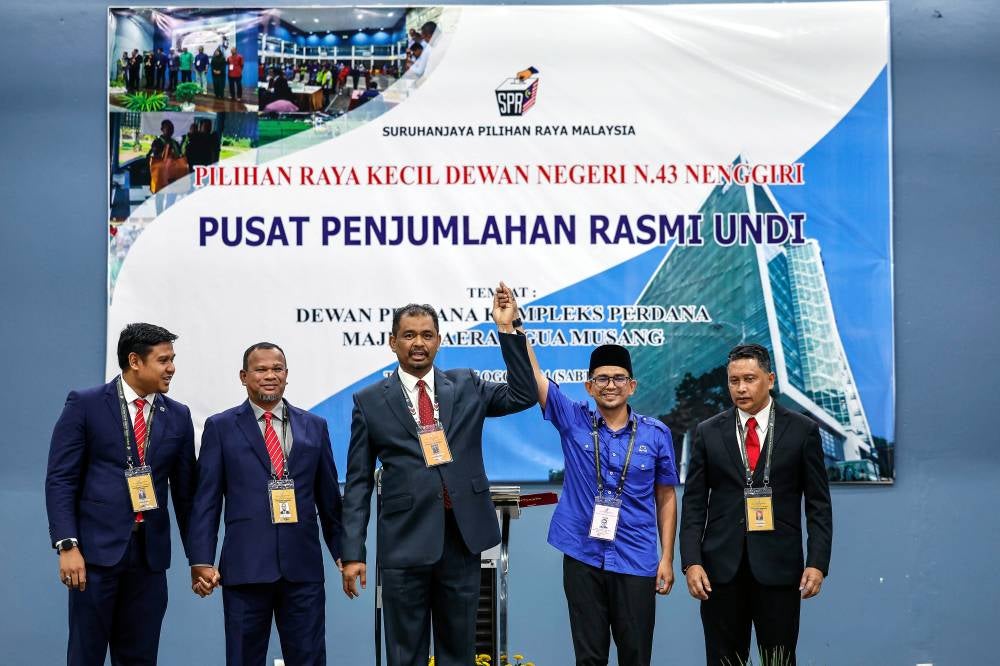Localised campaign strategy could have shifted Nenggiri election results, say analyst
PN should have focused on understanding and addressing the specific needs and concerns of local communities.
SHARIFAH SHAHIRAH
SHAH ALAM – Perikatan Nasional (PN) could have seen different results in the Nenggiri election if they had better aligned their campaign with local issues and addressed specific regional concerns, according to political analysts.
Universiti Teknologi Mara (UiTM) Centre for Communication and Media Studies, College of Computing, Informatics and Media, Professor Datuk Dr Ismail Sualman said that PN should have focused on understanding and addressing the specific needs and concerns of local communities.
This includes increased grassroots engagement, regular dialogue with community leaders and a visible presence at local events and issues.
He also said that the national-level partnership PN chairman Tan Sri Muhyiddin Yassin and Pas president Tan Sri Abdul Hadi Awang might not resonate with local voters, as many prioritised candidates and issues that directly benefit their community over national figures.
“Despite the partnership between Muhyiddin and Hadi, voters remain more inclined to support Barisan Nasional (BN) as if they felt BN was more attuned to local issues or had a more effective on-the-ground presence.
"The key is how you play with sentiment, control the narrative, and manage statements in a new political dynamic. Leaders must be presentable beyond just the campaign period.
“Instead of relying solely on a national narrative, PN should tailor their campaign to resonate with local issues, making their platform relevant and appealing to the specific demographics and concerns of their constituency,” he said when contacted yesterday.
He highlighted that voters often prioritise local issues and candidates.
Ismail said that if PN's local campaign was not compelling, it could have led to a lack of support despite the alliance.
Ismail said that people cared less about national alliances and more about resolving local issues like water shortages and unemployment among young voters.
Therefore, addressing these concerns was key to winning voters' support.
He added that PN should invest in developing strong, credible local leaders who were well-known and respected in their communities, including training and support to ensure alignment with local values and needs.
He emphasised that PN's shortfall in the Nenggiri election could be attributed to several factors including campaign strategies, voter sentiment, and regional dynamics.
Ismail said if the PN candidate lacked charisma, local recognition or was seen as less capable than the BN candidate, it could have swayed voters.
Additionally, internal discord or ineffective leadership within PN may have led to a disjointed strategy or lack of focus.
"If their campaign failed to address local issues and did not clearly differentiate their platform from BN, it could have contributed to their loss.
“Additionally, if PN was overconfident or relied too heavily on past success without innovating and addressing new challenges, this could have been a factor in their defeat," he added.
Hence, he suggested that PN should send clear signals to its top leadership and consider a leadership shuffle.
Ismail emphasised that the leadership must recognise the evolving political landscape, as traditional strategies may no longer be effective.
He said they need to adapt to new voters' expectations and emerging trends, particularly among young and diverse electors is crucial.
Additionally, the leadership should focus on grassroots engagement and ensure the party's policies align with the needs of the people.
“We don’t want party-hopping. If any leader is perceived as corrupt or dishonest, it could severely damage the party's credibility and necessitate a reshuffle,” he added.
Ismail emphasised the need for leaders to engage more with local communities and address their concerns.
Accountability for party performance and governance, he said, were essential.
He added if leaders were seen as ineffective or out of touch, a top-level change might be needed to bring new energy and ideas, with a focus on transparency, integrity, and ethical leadership.
Last night, BN reclaimed the Nenggiri state seat in the by-election, with candidate Mohd Azmawi Fikri Abdul Ghani securing a decisive victory by 3,352 votes.
The Kelantan Umno Youth chief garnered 9,091 votes, defeating Pas candidate Mohd Rizwadi Ismail from Perikatan Nasional (PN), who received 5,739 votes.
Returning officer Nik Raisnan Daud announced the results at the vote-tallying center in Dewan Perdana, Kompleks Perdana, Gua Musang District Council.
BN previously held the seat for four consecutive terms since it was first contested in 2004 but lost it to PN's Mohd Azizi Abu Naim in the Kelantan state election last August.
Azizi, contesting under the Pas logo, won against BN's Ab Aziz Yusoff by a majority of 810 votes.










